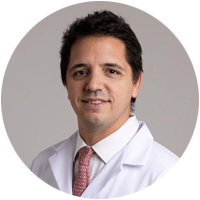Nicolas Avellaneda, MD, PhD | Surgical Leadership

Nicolas Avellaneda, MD, PhD, general and colorectal surgeon at CEMIC University Hospital in Argentina, has built an impressive career across multiple countries and institutions. After completing his residency in Argentina, he pursued advanced training in colorectal surgery at Aarhus University Hospital in Denmark, where he focused on complex conditions like inflammatory bowel disease and rectal cancer. His academic journey continued with a mastership in colorectal surgery at the University of East Anglia in England, and finally back to Argentina to earn his PhD.
“I’m always seeking to learn more,” Avellaneda shares. “That’s why the Harvard Medical School Surgical Leadership Program caught my attention. A former colleague recommended the course, and the chance to study at Harvard Medical School, combined with the focus on leadership, made it the perfect fit for where I am in my career.”
The Power of Diversity and Financial Literacy in Leadership
Avellaneda initially expected a general overview of leadership, but he soon discovered the program offered a much deeper learning experience. “I thought it would be focused just on surgical leadership, but it goes far beyond that,” he explains. “We’re learning about finance, team dynamics, and leading processes—not only in a hospital setting but in every part of life.”
One of the most impactful aspects for him has been understanding the importance of diverse personalities and abilities within teams. “As surgeons, we often have strong personalities,” he admits. “But this course taught me that successful leadership means acknowledging and harnessing different strengths within the team. Not everyone needs to be the same; it’s about creating a cohesive group that values each member’s unique contributions. This lesson applies not just in the operating room, but in every setting, whether at work, at home, or within society.” Reflecting on a powerful exercise in the course, he recalls a session, which involved a survival scenario. “The exercise showed us that the most skilled person doesn’t always need to be the official leader. Sometimes, the best outcomes come from recognizing the strengths of others and letting them lead, regardless of titles,” he says. “That lesson has stayed with me, reinforcing the value of diversity in any team setting.”
Avellaneda also appreciated learning how finance impacts health care operations, something he hadn’t fully considered before. “I didn’t enjoy finance before, but now I understand the importance of financial literacy, even for a surgeon. It’s essential to know how to make a positive impact on the financial health of our teams and institutions.”
Creating Change Through Innovation
Currently, Avellaneda is developing an innovative platform for his capstone project within the Surgical Leadership Program, with the goal of enhancing treatment outcomes for colorectal cancer patients across Argentina. The capstone project, a central component of the program, guides participants to create and often implement a solution within their organization.
“We’ve established a national database with over 3,000 patients, but the challenge is improving patient outcomes. This platform will offer real-time feedback to hospitals, helping them benchmark their performance and make improvements based on national data.”
Avellaneda’s project focuses on building a platform that leverages data from a prospective colorectal cancer database he helped establish in Argentina. He explains, “Most national prospective databases come from the U.S. or other highly developed countries, where resources are more readily available. We started this initiative around four or five years ago, and now 30 hospitals across Argentina are actively contributing data on colorectal cancer patients from diverse regions.”
The information gathered from the database is already providing valuable insights into treatment gaps. “Through our analysis, we’ve identified areas that need improvement—complications, delays in treatment, and other aspects of care,” he notes. Unlike many underdeveloped countries that rely on retrospective data, which often underestimates health care challenges, this prospective database allows for a more accurate assessment of treatment outcomes. “With real-time data, we can see where we fall short and what needs to be addressed.”
The proposed platform aims to bridge these gaps by providing hospitals with real-time feedback on their performance. “The idea is to create an internet-based platform, where hospitals can input patient data and receive immediate benchmarking information,” Avellaneda explains. “The system will compare metrics, like complication rates, against national data from participating hospitals. It will show whether a hospital is performing above, below, or at the median, offering instant advice on improvements where needed. For example, if there’s a high rate of anastomotic leaks, the platform can offer specific, evidence-based suggestions to help reduce those complications in future cases.”
Avellaneda believes that the Surgical Leadership Program has been instrumental in shaping his approach to this project. “This course has provided me with tools and insights I didn’t have before—especially around structuring an initiative like this. It’s taught me how to think strategically about implementation, budgeting, and sustainable impact,” he reflects. “If successful, this platform could be transformative, not only for Argentina but as a model for other under-resourced health care systems looking to improve patient outcomes through data-driven insights.”
Looking forward, he is confident the Surgical Leadership Program will continue to shape his career trajectory. “This course has changed my life,” he reflects. “It’s given me the tools to advance my career and develop my ideas in ways I never anticipated. The relationships I’ve built with peers from around the world are invaluable, and I’m eager to apply what I’ve learned both in my surgical practice and in leading my team.”
Written by: Pamela Searle